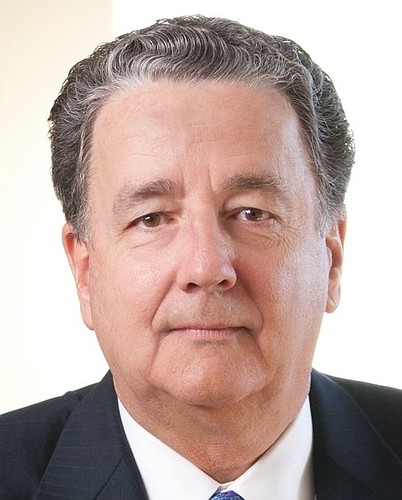
It’s better to have it and not need it than to need it and not have it.
That will be the mindset when a delegation from JEA and the city travel to New York City in December to meet with bond-rating agencies and bankers.
The mission will be to sustain JEA’s AA bond rating and its $300 million operating credit line.
Paul McElroy, the utility’s CEO, said JEA does not plan to issue any bonds in the next year, but maintaining the credit line helps sustain the AA rating.
“Credit rating agencies look at our liquidity — our ability to draw funds,” he said.
Jacksonville University professor Richard Cebula said the agencies also look at the capacity to pay back and pay on time.
He said other factors are whether revenue sources are dependable, if they are subject to changes in the economy and the prognosis for growth in population and tax base.
“The outlook for the local economy is good in North Florida,” said Cebula, the Billy J. Walker/Wells Fargo endowed chair of finance in JU’s Davis College of Business.
When McElroy, several other JEA officials, Mayor Lenny Curry and a City Council member yet to be named meet with the agencies, they will have several positive financial aspects to share. There also will be some issues that may draw concern from the agencies.
On the positive side, JEA’s combined debt on the electric and water systems was $6.4 billion in 2010. As of Sept. 30, it was down to $4.8 billion. JEA plans to reduce its debt by an additional $900 million by 2020.
The utility also exceeded projections of key financial parameters provided last year to the agencies, including sales, revenue growth and cash on hand — the number of days it can pay operating expenses with the cash available.
But that’s not because the utility went into the meeting with the strategy to “undersell and over-deliver,” said McElroy.
It was due to the weather.
He said the year was unusually hot and dry. That caused customers to use more water for irrigation and more electricity for cooling businesses and homes.
“We also had more growth than we predicted,” he said.
Part of JEA’s presentation in December that might not sit well with the bond rating agencies is the forced resignations of five of the seven members of the utility’s board of directors.
“Financial markets don’t like volatility in anything,” McElroy said.
Since Curry took office July 1, he has asked for the resignations of all seven board members. Most of Curry’s requests came after The Florida Times-Union reported JEA had a practice of preparing talking points in advance of board meetings.
Curry has appointed five prominent community members to the board:
• Real estate developer Ed Burr, CEO of GreenPointe Holdings and chair of the Jacksonville Civic Council
• Kelly Flanagan, Jacksonville Jaguars chief financial officer
• Former City Council President Warren Jones
• Delores Kesler, who founded a temporary staffing agency from her home and then developed it into Adecco Group North America, before selling it in 1997
• Insurance and real estate executive Tom Petway, an original Jacksonville Jaguars partner who also served two terms as chair of the former Jacksonville Economic Development Commission
“I think their bios would impress anybody,” said McElroy.
He also said the makeup of JEA’s board has changed regularly over the decades and that members make policy and strategy decisions, not ones on how to run utility operations.
Board members whose resignations have not been accepted by Curry are Husein Cumber, vice president of corporate development for Florida East Coast Industries, and attorney Robert Heekin.
Another issue that could cause concern is the percentage of JEA’s revenue that is used to pay its annual contribution to the city.
In April, McElroy said bond-rating agencies like to see contributions based on a percentage of a utility’s revenue and the guidelines differ for electric utilities and water and sewer utilities.
He said the median contribution amount for AA-rated utilities like JEA is about 5 percent of revenue. JEA’s contribution for fiscal year 2014-15 was $111 million, about 9 percent.
The utility is in negotiations with City Council to amend the contribution calculation.
Council President Greg Anderson introduced legislation Oct. 27 to set the contribution for fiscal year 2016-17 at $114 million, based on 6.2 percent of JEA’s average gross revenue in fiscal years 2013-15.
The bill, scheduled for public hearings, also would establish $114 million as the minimum annual contribution in future years.
The JEA and city delegation has meetings scheduled Dec. 10-11 with Fitch, Moody’s and Standard and Poor’s and with Bank of Tokyo Mitsubishi/Union Bank, current providers of the credit line.
The public not-for-profit utility’s complete financial reports are available at JEA.com.
(904) 356-2466